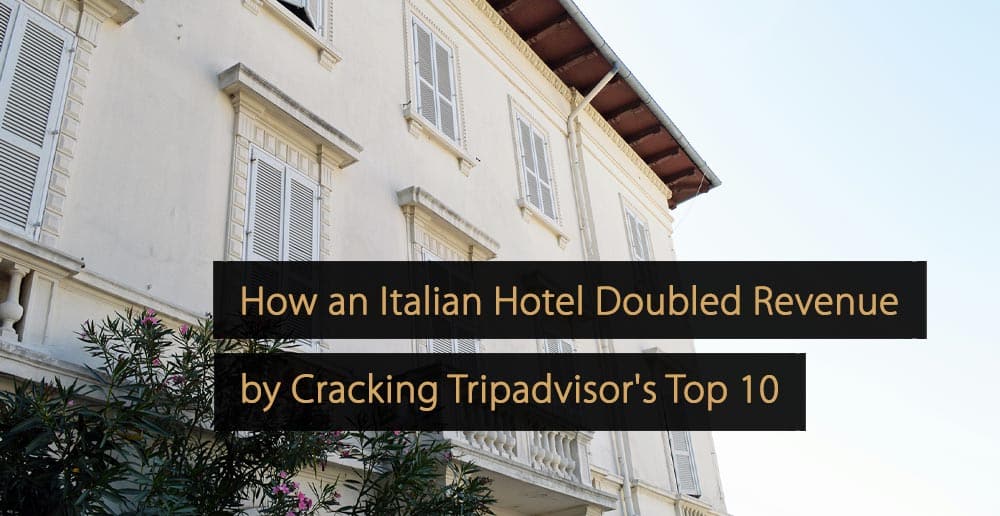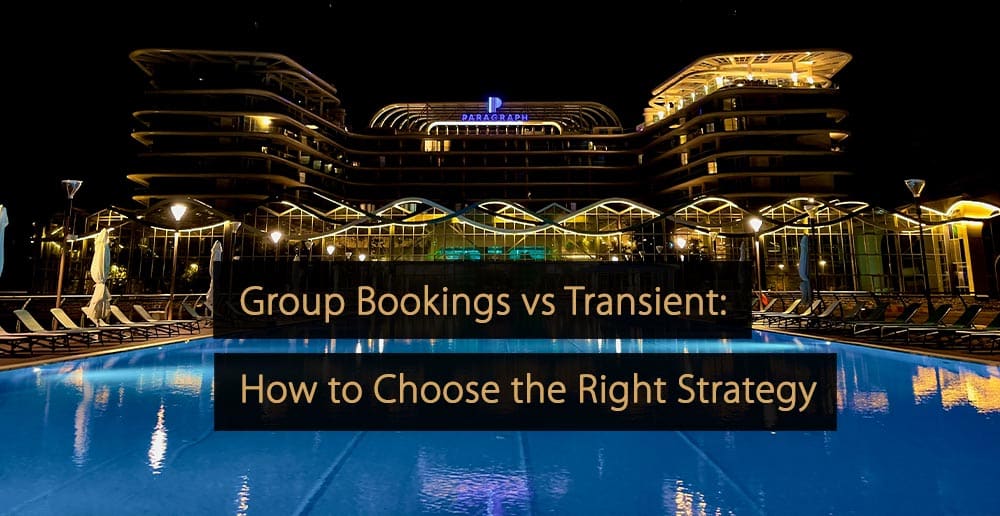Question for Our Hotel Marketing Expert Panel
What is your advice for using GDS as part of a hotel’s overall distribution strategy? What tips or best practices can you share for getting the most out of your GDS? (Question from Nicole Sideris)
Industry Expert Panel
Our Industry Expert Panel exists out of professionals within the hospitality & travel Industry. They have comprehensive and detailed knowledge, experience in practice or management and are forward-thinking. They are answering questions about the state of the industry. They share their insights on topics like revenue management, marketing, operations, technology and discuss the latest trends.
Our Marketing Expert Panel
- Tamie Matthews – Revenue, Sales & Marketing Consultant, RevenYou
- Luminita Mardale – Director Of Marketing And Business Development, Vienna House
- Moriya Rockman – Chief of Marketing, Smiling House Luxury Global
- Max Starkov – Adjunct Professor Hospitality Technology, New York University
- Nicole Sideris – Founder & Prinicipal Consultant, X Hospitality
- Stephanie Smith – Founder, Cogwheel Marketing
- Linda Bekoe – CEO, APLBC
- Michael J. Goldrich – Founder & Chief Advisor, Vivander
- Ask Our Panel a Question
- Join Our Expert Panel
“As a start, any hotel with a corporate footprint should have a GDS, regardless of whether it is a low-cost, budget style such as The Hotel Network, or the more expensive but all-inclusive offering of Travelclick/Amadeus. Once the hotel has the GDS, it needs to consider its sales strategy to go with the connection. Just because you are listed, it doesn’t mean that the bookings will flow in. You need to add a consortia programme but you must research what is appropriate in your local area. For Australia, something like FCM is a must. Other programmes can be added depending on local production.
To complement and enhance your sales strategy, add Lanyon and Market Leads to be able to access new corporate RFPs. This will ensure you can prospect for new business. You must also treat the connection just like any other OTA and liaise with your market manager to ensure your listing is optimised and the details are correct. Because we cannot see our listing easily, we need to rely on audits to ensure that our details are flowing through to agents correctly.
GDS has the potential to produce well if managed well.
Any hotel that has a steady stream of corporate clients or wishes to grow a strong base of corporate business should invest in a GDS. The supplier they use will depend on their budget, the amount of business they can attract in their area and the time they/their sales manager has available to work this channel.
There is a variety of options available for GDS, from simple connections that send one rate plan, through to full service, multiple rate plans, RFPs and consortia programmes. The hotel needs to decide what is right for their budget and what business potential is in their area. Not all hotels need to spend big on GDS.
Note that both Booking.com and Expedia will be sharing your rates to the GDS at their commission so listing yourself on a GDS can bring your commission levels down to 10% depending on the supplier you choose and the package you select.
- Once a supplier is chosen, the hotel then needs to ensure they are listed. The GDS loading document is big and very detailed, do not skip over any areas as you don’t know which area a travel agent may use to search.
- Once you are listed, ensure you are live and visible by chatting to your favourite travel agent and asking them to share screenshots of what they see. Remember, room type descriptions and rate plan descriptions are different on GDS so don’t attempt to copy and paste what you have on your website.
- Next, access your Lanyon account and look for opportunities. You may wish to stay with the free account or upgrade to add Lanyon Leads so you can identify potential in your area. Your sales manager will be able to work this area.
- Then review the consortia programme offering and select what suits your area. Your supplier will have pricing and production but remember the production is based on airport codes so do your own checking and determine which programmes are right for your hotel.
- Lastly, manage your listing in the same way you would any OTA listing by reviewing it annually to ensure the information is correct. There is great potential for increasing business with a good GDS listing but it takes work to ensure the best return on investment.”
“Global Distribution Systems (GDS) are used by Travel Agents (TAs) and Online Travel Agencies (OTAs) to book hotels, offering real-time availability of rooms, rates, and dates. To get the most out of your GDS you can:
- Understand who your potential guests are, what they are looking for and choose the GDS channel that fits to your property. Different GDS channels have different strengths and preferences.
- Place the booking commissions you’re offering in the right spot so TAs can easily see what they’re getting.
- Enter important landmark descriptions that your guests and TAs need to know about and this will help your hotel to get more coverage from the GDS (proximity to the airport, city centre hotel, important travel attractions, services, amenities, reviews, images).
- Permanently monitor your competitors for rate parity and use analytics tools and reports to monitor bookings, revenue, occupancy, ADR and RevPAR.”
“We recognise the demand for a Global Distribution System (GDS) tailored to the short-term rental (STR) sector and are actively developing a dedicated GDS for this industry. Our goal is to establish a crucial link between the STR market and established travel partners. Our team is diligently working towards the launch of Villa Tracker, our innovative B2B platform, designed to revolutionise the booking process. This platform is specifically crafted to facilitate the effortless reservation of luxury and ultra-luxury properties for both guests and travel professionals.
By integrating this advanced GDS into the short-term rental sphere, we aim to offer an unparalleled, seamless, and efficient booking experience that not only meets but exceeds current industry standards. This initiative underscores our commitment to expanding accessibility and simplifying the booking workflow in the rapidly evolving landscape of hospitality and travel.”
“The GDS are an important distribution channel for any hotel that caters to the managed business travel and corporate meetings market. All of the Travel Management Companies (TMCs) that serve Fortune 500 companies, as well as traditional travel agencies that typically serve mid-size and smaller companies, use GDS for their hotel bookings. If your property caters to this customer segment, you need to be on the GDS and have a marketing strategy for this distribution channel.”
“Understand your business and project what % of your business will come through the GDS. For the bookings that are delivered through the GDS, find out what segment they belong to. If they are entertainment for example, it is likely they’ll contribute to a longer length of stay. Use the GDS booker information to form relationships and potentially set up negotiated rates.”
- “Audit your HOD screens. Check your content, amenities and images for accuracy. You may be surprised at how many inaccuracies you find.
- Look at your competitor channel mix production to see how much available GDS business is in the market.
- If you choose to run ads, define the targeting parameters and manage your PCCs. If you do not define them, it will be based on targeting around your airport code. The best way to handle this is to cross reference your Agency 360 and compare if you are getting additional penetration against your comp set over time. You can also request how to pull your new and increasing PCCs which also becomes a good prospecting list for sales.
“GDS (Global Distribution System) plays a pivotal role in the success of any hotel, particularly when targeting the corporate market, which includes attracting both small and large companies, as well as discerning leisure guests seeking a high-end experience. It is imperative for hotels to not only recognise the costs associated with acquiring this type of business but also to assess the additional revenue streams generated from amenities such as bars and restaurants.
For instance, corporate guests are more inclined to dine in the hotel’s restaurant, utilise room service, and take advantage of facilities like meeting rooms. Due to the demanding schedules of corporate travellers, they tend to spend minimal time in their rooms, thereby reducing wear and tear on the accommodations. Additionally, it’s worth noting that GDS bookings remain consistent throughout the year, making them a reliable source of revenue not subject to seasonal fluctuations.
Lastly, the SME (Small and Medium-sized Enterprises) and unmanaged travel segments represent substantial markets that cannot be overlooked by hoteliers. These segments offer significant potential for attracting a diverse range of guests, further emphasising the importance of a strong presence on GDS platforms.”
“The use of Global Distribution Systems (GDS) integrated with AI significantly benefits hotel distribution strategies. GDS is crucial for hotels to connect with travel agencies globally, enabling real-time inventory management and pricing. AI integration allows hotels to use dynamic pricing, with algorithms analysing historical booking patterns, competitor prices, and market demand. This method ensures competitive rates and maximizes revenue. AI-driven analysis of GDS bookings also helps create targeted marketing campaigns and personalised offers, boosting customer engagement and repeat bookings.
AI further improves customer profiling, enabling hotels to better understand their clients and customise offerings based on previous bookings. AI’s predictive analytics can anticipate future booking trends, assisting in capacity planning and strategies to increase occupancy during slow periods. It’s important to keep content on the GDS accurate and engaging. AI-powered content analysis tools can pinpoint areas needing enhancement. Hotels should participate in GDS marketing programs, using AI to identify the most effective programs for their target markets. Regular strategy updates, informed by real-time data and market shifts, are key to maximising GDS effectiveness.
Maintaining personal relationships with travel agents is still crucial in an automated environment. AI can pinpoint key agents or agencies for targeted relationship-building strategies. It’s also essential to align the GDS strategy with other distribution channels, including direct bookings and OTAs. AI’s analysis of performance across these channels helps create a unified and successful distribution strategy. In summary, combining AI with GDS can greatly improve a hotel’s distribution tactics, leading to better visibility, increased bookings, and enhanced revenue through data-driven decisions and optimised strategies.”
Ask a Question & Join Our Expert Panel
Would you like a question to be answered by our Industry Expert Panel? Or would you like to join our community of experts and share your experience, insights, and knowledge with fellow industry professionals? Via the buttons below you can submit a question or submit a request to become part of our expert panel.
More Tips to Grow Your Business
Revfine.com is the leading knowledge platform for the hospitality and travel industry. Professionals use our insights, strategies, and actionable tips to get inspired, optimize revenue, innovate processes, and improve customer experience.Explore expert advice on management, marketing, revenue management, operations, software, and technology in our dedicated Hotel, Hospitality, and Travel & Tourism categories.















Leave A Comment